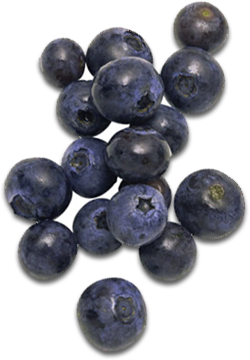no items to display
Fruits and vegetables: Just what the doctor ordered
It’s no secret that fruits and vegetables are the cornerstone of a balanced, nutritional diet. Scientists have long known that people who eat more fruits and vegetables are less likely to suffer from heart disease, cancer, and other diseases. And the obese are the most likely of all to be affected by these life-robbing conditions.
Last month, the city of New York put its money where its mouth is: doctors can now write prescriptions for fruits and vegetables for their obese patients. The Fruit and Vegetable Prescription Program (FVRx) will provide “Health Bucks” coupons redeemable at any of the 142 farmers’ markets in the city.
I am so heartened by this news. In an age where the answer to illness is typically reactive (i.e. managing health problems once they arise) rather than pro-active (preventing them from occurring in the first place), this program is downright revolutionary. The fact that a major U.S. city is offering coupons to its obese residents to purchase fruits and vegetables shows just how important they are to our health.
The program will debut at the Lincoln Medical Center in the Bronx and Harlem Hospital in upper Manhattan. Chief of Pediatrics Dr. Katherine Szema said the goal is to get children and their parents to eat at least one more serving of fruits and vegetables each day - getting them a little closer to achieving a balanced, nutritional diet.
That’s no small improvement, considering one in ten New Yorkers don’t eat any fruits or vegetables in a given day, and in the Bronx that figure is an astonishing one in two. No apples, oranges, peaches, berries, grapes, tomatoes, spinach, broccoli, cabbage, or carrots. Nada. And New Yorkers aren’t the only ones skipping the produce. According to the Centers for Disease Control, only 25 percent of American adults consume five servings of fruits and vegetables a day.
How do fruits and vegetables help? First, they’re chock full of vitamins, minerals, fiber, and a wealth of disease-fighting phyto-nutrients. And second, even though they’re naturally low in calories, they’re filling, so they can take the place of unhealthy, empty calories without leaving people feeling hungry.
According to the World Health Organization, insufficient consumption of fruits and vegetables is one of the top ten risk factors for mortality from all causes. A review of studies published in the European Journal of Nutrition in 2012 found that eating more fruits and vegetables lowers the risk of heart disease, high blood pressure, and stroke.[i]
It’s particularly important that obese people eat more fruits and vegetables, because obesity increases the risk of diabetes, high blood pressure, high cholesterol, cancer, stroke, cancer, and heart attack. Not to mention two-thirds of American adults are overweight and one third are obese.
Juice Plus+ has always recognized the importance that fruits and vegetables play in a balanced, nutritional diet. And while Juice Plus+ isn’t a substitute for getting your daily fill of produce, it can help fill in the gap between what you should eat and what you do eat every day. In fact, Juice Plus+ can actually help you eat more fruits and vegetables. The Children’s Health Study found that after making a commitment to their health by taking Juice Plus+ for just one year, 61 percent of children and 71 percent of adults reported they also ate more fresh fruits and vegetables every day.
What’s your take? Do you wish your city would implement a similar program?
[i] Boeing H, et al. Critical review: vegetables and fruit in the prevention of chronic diseases. Eur J Nutr. 2012 Sep;51(6):637-63.






